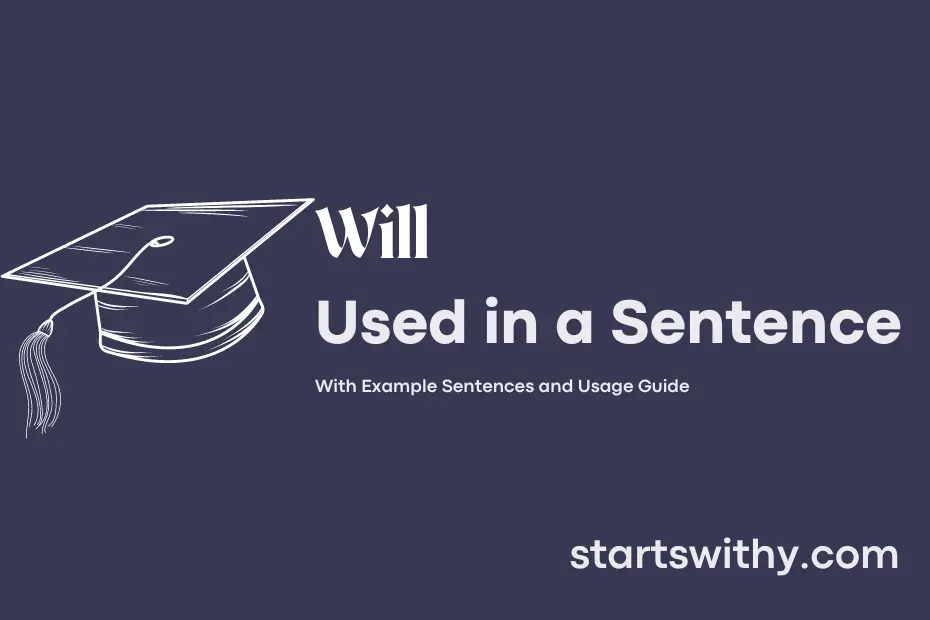Have you ever wondered how to clearly express actions or intentions in the future? The use of “will” in a sentence can help you do just that. “Will” is a modal auxiliary verb used to indicate something that is going to happen or be done.
When forming a sentence with “will,” the structure is straightforward and commonly used in everyday conversation. By pairing “will” with a base verb, you can easily convey future actions, decisions, promises, or predictions. Understanding how to construct examples with “will” can enhance your ability to communicate effectively in both spoken and written contexts.
7 Examples Of Will Used In a Sentence For Kids
- Will you help me color this picture?
- I will eat my lunch in the cafeteria.
- Will you play with me at recess?
- The teacher will read us a story.
- I will share my toys with my friends.
- Will you sing with me in music class?
- We will have fun learning new games.
14 Sentences with Will Examples
- Will you be attending the college fest next week?
- I will study for my exams tomorrow.
- Will you join the debate club this semester?
- I will submit my assignment before the deadline.
- Will you be participating in the cultural night event?
- I will volunteer for the environmental club’s cleanup drive.
- Will you be able to give a presentation in class tomorrow?
- I will join the computer coding workshop to improve my skills.
- Will you be going to the sports meet to support our college team?
- I will apply for the internship program this summer.
- Will you be organizing the charity event on campus?
- I will attend the career counseling session to explore my options.
- Will you be preparing for the placement interviews next month?
- I will attend the guest lecture by the renowned economist.
How To Use Will in Sentences?
To use the word Will in a sentence, you need to understand its function as a modal verb indicating future action or intent. Here is a simple guide for beginners on using Will effectively in a sentence:
-
Formulation: Start your sentence with the subject (I, you, he, she, it, we, they) followed by Will.
-
Future Action: Use Will to talk about actions or events that will happen in the future. For example, “She will go shopping tomorrow.”
-
Intentions: Express intentions, decisions, or predictions with Will. For instance, “I will help you with your homework.”
-
Polite Requests: Use Will to make polite requests or offer assistance. For instance, “Will you please pass the salt?”
-
Spontaneous Decisions: Show spontaneous decisions or offers with Will. For example, “I’m tired; I think I will go to bed early tonight.”
-
Negatives: For negation, use “will not” or the contraction “won’t” after the subject. For example, “They will not be late for the meeting.”
-
Questions: To form questions, switch the subject and Will. For instance, “Will you come to the party with us?”
Remember to always place Will before the main verb in the sentence. With practice, you will become more comfortable using Will to express future actions, intentions, and requests in English sentences.
Conclusion
In conclusion, sentences with “will” often express future actions, intentions, or predictions. These sentences are valuable for clearly conveying what someone plans to do or what is expected to happen. For example, “He will go to the store tomorrow,” indicates a future action, while “The sun will rise in the east,” conveys a prediction.
By using sentences with “will,” writers and speakers can communicate their plans, expectations, or beliefs about the future effectively. These sentences help provide clarity and certainty in communication, making it easier for others to understand what is being conveyed. So whether discussing future events or expressing intentions, sentences with “will” are a vital part of everyday language usage.



